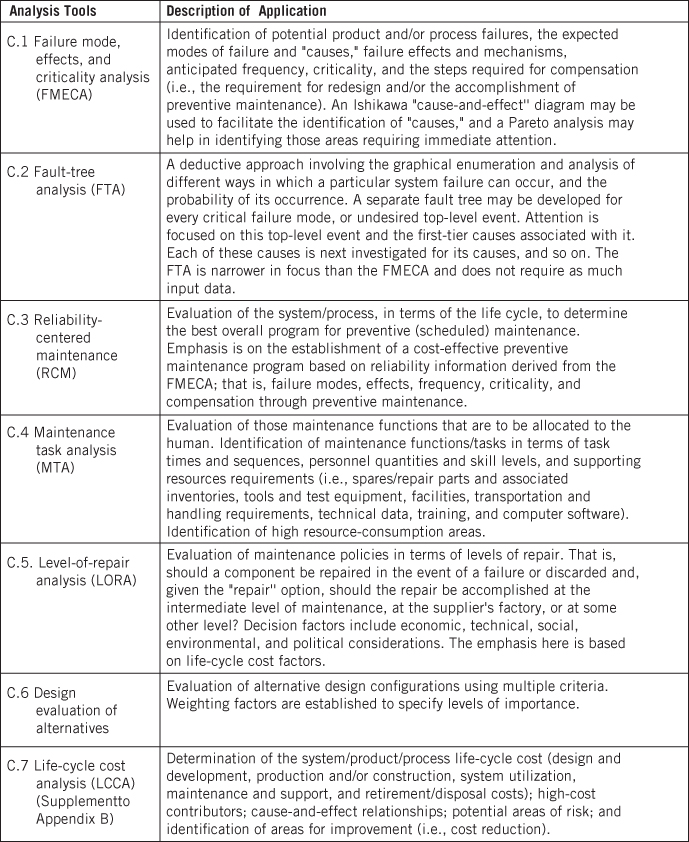Appendix C
Selected Case Studies (Nine Examples)
Throughout the early stages of the system life cycle, and as an inherent part of the system engineering process, numerous applications of different tools can facilitate trade-off studies in system design. Of particular interest here are some of the tools that address the downstream aspects of system support but can be effectively utilized earlier. Nine specific applications are noted as follows and described further in Figure C.11:
- C.1. Failure mode, effects, and criticality analysis (FMECA)

Figure C.1 Design analysis methods (case-study applications).
- C.2. Fault-tree analysis (FTA)
- C.3. Reliability-centered maintenance (RCM)
- C.4. Maintenance task analysis (MTA)
- C.5. Level-of-repair analysis (LORA)
- C.6. Design evaluation of alternatives
- C.7. Life-cycle cost analysis (LCCA) (which supports the material in Appendix B)
- C.8 Organizational Structure's Effect on Development
- C.9 Implementation in Hardware vs. Software
Each of these case-study examples is presented with a definition of the problem, the analysis process, and the analysis results.
C.1 Failure Mode, Effects, and Criticality Analysis (FMECA)
C.1.1 Definition of the Problem
Company ABC, a manufacturer of gaskets for automobiles, was experiencing problems related to declining productivity and increased product costs. At the same time, competition was increasing and ...
Get System Engineering Management, 5th Edition now with the O’Reilly learning platform.
O’Reilly members experience books, live events, courses curated by job role, and more from O’Reilly and nearly 200 top publishers.

